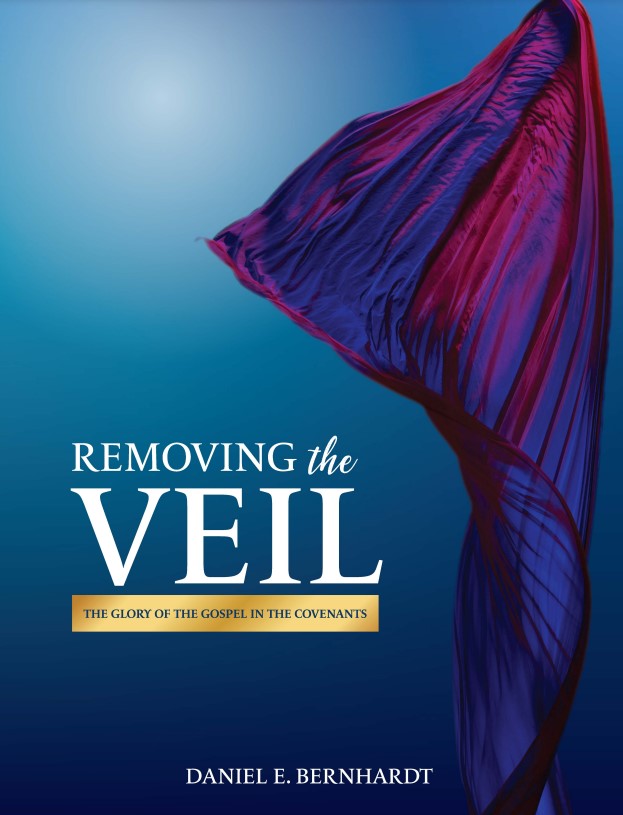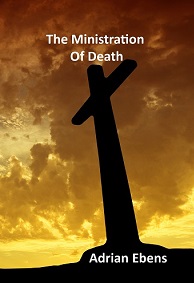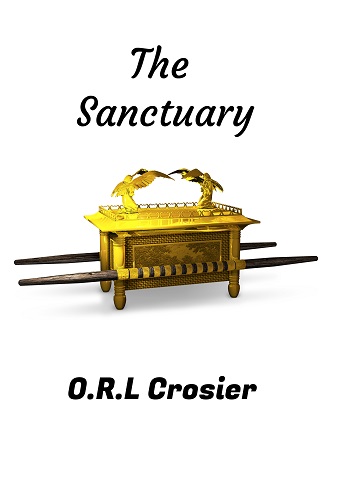Women at the Well
You know the story of the woman at the well. But do you know about the women at the wells?
They show up a number of times in the Bible, not just at Jacob’s well outside the city of Sychar in the middle of Samaria. We can learn much about the women at the well.
1
Gen 21:14. Sarah changed her mind. Hagar was no longer welcome.
It was Sarah’s idea that Hagar be a surrogate wife and now it was her idea that Hagar hit the road.
God tells Abraham to listen to Sarah, so he gives Hagar and Ishmael a bundle of provisions and sends them away. Soon they are wandering in the wilderness.
So, too, Israel would one day wander in the wilderness where they drink water from the Rock.
The woman who gives birth to a child in Revelation 12 flees to the wilderness where she is nourished. Is Hagar any different?
The water runs out. Hagar drops in despair and cries. The angel of God calls to her from heaven, “Why are you weeping? Fear not, for God has heard the voice of Ishmel.”
Gen 21:19 “And God opened her eyes, and she saw a well of water.”
Rejected, forsaken, cast out, alone, facing death, Hagar receives the water of life, and blessing from God at the Well.
2
Gen 24:10. Eliezar, Abraham’s servant, is off to find a wife for Isaac.
He takes 10 camels from the herd, and arrives back in Mesopotamia, to the city of Nahor where they began their long journey, to the house of Abraham’s family.
Eliezar arrives at a well outside the city at sundown, and prays to God.
“Let the damsel that should be the wife of Isaac grant not only my request but offer to water my camels also” So, like Jesus would do many years later, he asked a simple favor.
“Let me, I pray thee, drink a little water of thy pitcher.” Gen 24:17.
Just a drink of water. Eliezar used it as a test.
Elijah asked the widow of Zarephath for a “little” drink of water. 1Kings 17:10.
But Rebekah offers to water the camels as well! And says that she is the granddaughter of Abraham’s brother! Small world!
Gen 24:33. Laban invites Eliezar to a big feast but Eliezar says, “I will not eat until I have told my story.”
Neither did Jesus eat at the well in Samaria when the disciples returned from Sychar with lunch.
Some might call it destiny, but in the providence of God a woman came to a well in answer to His guiding hand, “according to His will in …the inhabitants of the earth” Dan 4:35.
3
Gen 29 Jacob, fleeing from Esau, arrives in Mesopotamia “the land of the people of the east.”
He sees a well with 3 flocks of sheep waiting to be watered. But “a great stone” was covering the well.
Jacob asks the shepherds if they know Laben, they do. And they say, “Here comes Rachel his daughter with his sheep.”
“But it’s high noon, middle of the day!” Jacob objects, “This is no time to water the flocks!”
“Why don’t you water them for her?,” He suggests.
Their answer: “We can’t until all the flocks arrive and THEY roll the stone away from the well.”
Just then Rachel shows up with all the sheep.
So, Jacob rolled the stone away from the well all by himself, and HE watered the sheep.
“And they said among themselves, Who shall roll us away the stone from the door of the sepulcher? And when they looked, they saw that the stone was rolled away: for it was very great.” Mark 16:3,4.
“The angel of the Lord descended from heaven, and came and rolled back the stone” Matt 28:2.
Jacob made the water available by removing a great stone.
Jesus “brought life and immortality to light” 2Tim 1:10 by removing the great curse of death,
and opening up “a fountain…to the house of David…for sin and uncleanness” Zech 13:1.
This is just the reverse of what his mother did for Eliezar a generation earlier.
Rebekah watered Eliezar’s camals, but now Jacob watered Rachel’s sheep.
At the same well, another union was formed, another marriage was made.
Marriages often happened or resulted from an encounter between a man and a woman at a well.
4
Exodus 2:15 is another example. Like Jacob, Moses flees from those who seek his life.
Moses also fled east, but this time to Midian and he sat down by a well.
The 7 daughters of Ruel (a.k.a. Jethro), the priest of Midian, came to water their father’s flock.
But the shepherds drove them away from the well.
Ezekiel 34:2 “Woe to the shepherds of Israel that do feed themselves! Should not the shepherds feed the flocks?” vs 15: “I will feed my flock, and I will cause them to lie down” “The Lord is my Shepherd I shall not want” for water from the well. “He leadeth me beside the still waters.”
Ezekiel 34:26 “And I will cause the shower to come down in his season; there shall be showers of blessing.”
Then Moses “stood up” to help them. Michael stands up to help his people. Dan 12:1
And Moses watered their flock. Jethro gives Moses his daughter Zipporah to be his wife.
Once again the woman at the well is protected and provided, blessed and betrothed.
5
2Samuel 17. Absalom has revolted against his father. David flees from Jerusalem.
Ahithophel advises Absalom to let him persue after David with 12,000 men and kill him that very night!
Absalom wants a 2nd opinion and calls for Hushai who (unbeknown to Absolom is supporting David).
Hushai advises Absalom to gather together ALL of Israel from Dan to Beersheba (something that would take much more time to organize) and that Absalom should lead the charge into battle HIMSELF.
Absalom fancies the prospect of having the star role and rejects Ahithophel’s counsel.
Meanwhile, Hushai sends a message to David’s men: cross over Jordan tonight!
But two of them who were taking the news to David were spotted.
They ran to a house in Bahurim (verse 18) and hid in his well.
Ps 27:5 "In the time of trouble He shall hide me"
Verse 18: The woman of the house took and spread a covering over the well’s mouth, and covered it with corn, and hid them. When Absalom’s men cam looking for them, she said that they had crossed over “the brook” Jordan.
Flash Back: Rahab hid two spies, covering them with grain, and then told the Jericho authorities they had already left town.
The woman at the well protected God’s messengers, saving them from certain death.
The well was a well of life to them. The woman saved them by the words of her mouth.
Proverbs 10:11 The mouth of a righteous man (or woman) is a well of life. “Jesus Christ the righteous” 1John 2:1.
Jesus was a well of life, he promised living water to one more woman at another famous well.
6
John 4. A woman comes to the well in the middle of the day and a Man asks her for a drink.
Isn’t this Eliezar asking Rebekah for a drink? Elijah asking the widow of Zeraphath?
Like Jacob and Moses, He has traveled far and is thirsting for refreshment.
Yet, like Jacob and Moses, He is the one who provides!
But what kind of a woman is this? Is she like Rebekah who volunteered to serve a stranger? (no. Jews don’t speak to Samaritans.)
Is she like Rahab (and her antitype) who hid a stranger? (no, she exposes Him to the entire city of Sychar!)
Is she like Hagar? Cast out and rejected? (yes, she’s an outcast, that’s why she’s coming at noon)
But like Rahab she’s a harlot who has almost lost count of how many men she’s had in her life. And she comes to Jacob’s well; she claims Jacob as her father; she’s related to Rachel (literally); and like Rachel she is also given water by a stranger.
The Bible speaks of another harlot that has water, lots of water.
Rev 17 pictures a woman, a great woman, a great harlot, sitting on many waters.
Verse 15: the waters are peoples, multitudes, nations, and languages.
This harlot has daughters. They are harlots too. But they are invited to leave their mother, to come out of her.
A women, in the Bible is a sign of---a church.
A church comes to the well, the source of water, to drink, because she is thirsty.
Who is the well? Who has the water of life?
Ps 36:9 For with Thee is the fountain of life. Verse 8: Thou shalt make them drink of the river of Thy pleasures”
A woman was once brought to the wellspring of life. She was made to come. John 8:3.
She was accused of being a harlot. She was being forced to drink. Right? Right.
Numbers 5:11-24 describes what is to be done to determine the guilt or innocense of a woman who is accused of being unfaithful to her husband.
God many times told Israel that they had forsaken Him and “played the harlot” Jer 3:1,8; Hosea 2:5.
Jer 2:13. My people…have forsaken me the fountain of living waters, and hewed them out cisterns, broken cisterns, that can hold no water.
In Numbers 5, the woman may or may not have been guilty.
So a test is conducted to determine her guilt or innocence. Vs 18, the woman is “set before the Lord” Isn’t that what happened? Cast down before Jesus.
Dust is taken from off the temple floor, mixed in water, and the women drinks it.
If she’s guilty, her thigh will rot and her belly will swell.
The water is called “bitter water” (cf Jer 23:14,15) because they commit adultery and walk in lies.
God says he will give His people “wormwood, the water of gall, bitter water, to drink.”
But, look, the priest writes these curses in a book (vs 23) and then blots them out with the bitter water!
Jesus stooped down and wrote in the dust. The words became a curse to the Jewish elders who fled,
and the curse for the woman (His bride, His people, the church) was blotted out. Jesus said, Neither do I condemn thee.
Jesus said that if we give to someone a cup of water to drink in his name, we will not lose our reward.
What does it mean to give water in the name of Jesus? What water are we to give?
Our own water? or His water, His doctrine, His words….
Deut 32:2 His doctrine shall drop as the rain, His speech shall distil as the dew.
Isaiah 12:2,3 Behold, God is my salvation: I will trust, and not be afraid: for the LORD JEHOVAH is my strength and my song; He also is become my salvation. Therefore with Joy shall you draw water out of the wells of salvation.
Rev 21:6 He that sat upon the throne says, I will give unto him that is athirst of the fountain of the waters of life freely.
Where is this fountain? Rev 22:1 He showed me a pure river of water of life, clear as crystal, proceeding out of the throne of God and of the Lamb. God IS the fountain! He is the great Source of all things. "God, the Father, of whom are all things" 1Cor 8:6.
So come to the Well. There is protection and provision, blessing and bethrothal.
Rev 22:17 The Spirit and the Bride, the Lamb’s wife and the Lamb who HAS the 7 Spirits of God, say “Come” And let him that hears, Come! And let him that is athirst, Come! And whosoever will, let him take the water of life freely!





